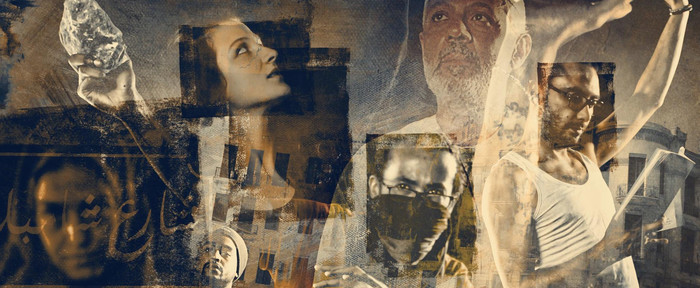The Network of Transdisciplinary Trauma Studies aims to connect scholars, practitioners and artists with a research interest in Asian, African, European and American societies from a comparative perspective with a special focus on the MENA region
- to gain an overview of the past and current research activities and outputs in this field,
- to find other researchers working on the same or a similar topics,
- to identify new research topics and questions,
- to help creating research structures and formats that enable multidisciplinary research between e.g. cultural studies (literature, film, etc.), social psychology, psychology, neurosciences, gender, historical or cultural anthropology as well as social and political sciences.
The network was initiated in November 2014 at an interdisciplinary, transregional conference on trauma under the title “Between Politics and Healing: Understanding Trauma in Conflicts and Recent Violent Transformation Processes from a Comparative Perspective” that took place at the University of Cologne, Institute of Oriental Studies.
This initiative arises from the observation that the complexity of trauma in human beings might better be studied in an epistemological framework that draws from various disciplines. In a certain sense, the Network of Transdisciplinary Trauma Studies attempts to continue the pioneering work done by Kamran Rastegar who, in 2007/08, set up a research network on “Memory and Social Trauma in the Middle East”. This first network from which several conferences emerged was located at the University of Edinburgh. This new network, however, is not limited to Middle Eastern Societies, but tries to include perspectives and experiences from other postcolonial or neo-colonial contexts and regions.
An interdisciplinary approach would be more apt to consider the manifold dimensions of situations, events, living circumstances, languages, histories, cultural products, and inner human life in which trauma plays a significant role. A further reason specifically related to the study of Arab and Islamic societies is that, although there seems to be still a lack of research on psychosocial, cultural and historical trauma in the MENA countries, an increasing number of scholars of various disciplines, NGO’s and artists have started to be interested in trauma, but as far as we know an overview of the field is still lacking.
In a globalized world manifold and complex destructive dynamics are at work, producing, nourishing or maintaining power asymmetries, ongoing oppression and exploitation, as well as violent conflicts. Therefore, we subscribe to a critical and decolonizing perspective that tries to be aware of the social, political, economic and cultural dimensions, causes and roots of trauma re-contextualizing trauma where necessary. Accordingly a diachronic view is crucial to understand historically (and trans-generationally) the emergence and causes of current conflicts and structural violence – without neglecting economic and other important factors.
Therefore we would like to invite scholars with various academic backgrounds as well as practitioners (Social Psychology, Psychology, Middle Eastern Studies, Cultural and Literary Studies, Social and Political Studies, History, Memory Studies, Anthropology,…) and artists to join our network as well as to share their insights and questions, resulting eventually in a more comprehensive approach of the developments and efforts that have been done in research on trauma, enabling us to coordinate and focus our research in the best way possible. In a world in which dehumanization is a strong force on a global level, research should provide us with understanding, awareness and insights as well as with a precise language that is needed to express the complex and sometimes hidden dynamics of trauma in order to be able to help re-humanize the living environment of people and to provide resources for a less-violent future.
Please let us know if you are interested in being represented on the network platform or if you would like to send us your feedback or suggestions for improving our activities and presentation.
Stephan Milich
